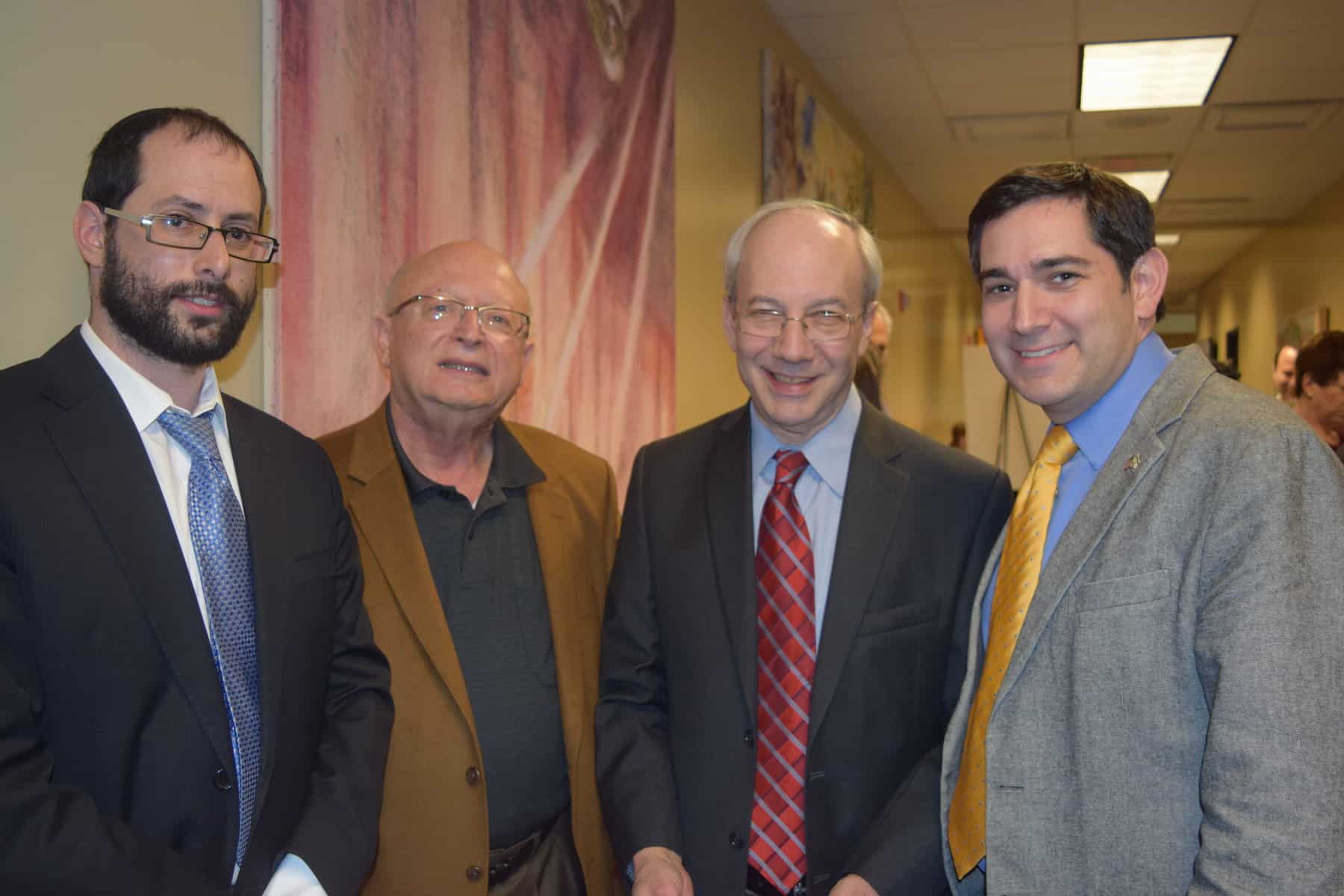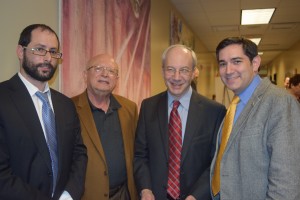Rabbi Eric Yoffie knew he would be speaking to a wide cross-section of the Jewish community as the Milton “Mickey” Kramer Scholar-in-Residence for the 3rd Annual Tidewater Together, which took place February 4–7.
What he didn’t know was if his Jewish audience—of all backgrounds, affiliations, and practices—would be courteous in their reactions, if they would be willing to consider an “outsider’s” perspective, or if they would even listen to what he had to say.
And the rabbi had a lot to say. Beginning on Thursday night at the Reba and Sam Sandler Family Campus, Yoffie led discussions about challenges facing Jewish communities like Tidewater’s.
His themes changed throughout the four days of Tidewater Together, but his underlying message continually emphasized the important role synagogues, along with Jewish organizations, have in ensuring the future of American Jewry—and the optimism he holds for a strong Jewish future.
“Our communities are two pronged,” says Yoffie, president emeritus of the Union of Reform Judaism, an organization of 1.5 million Jews he led for 12 years. “One that you have is the communal structure, and the Federation is the very heart [of that]. And then you have the grass-roots religious structure, which is the synagogue.
“My message over the course of the four days is you need to have those two arms working together. Either one, without the other, is disaster,” he says.
“Communities don’t survive if you have communal bodies that aren’t sensitive to and supportive of the needs of synagogues, and vice versa.”
Yoffie also emphasizes his belief in justification for an optimistic, hopeful view for American Jewry.
The Tidewater Jewish community responded to Yoffie’s six unique presentations with curiosity, admiration, extended conversations, and some debate.
All of which are goals of the ambitious program, and which satisfied Yoffie’s desire for energetic—and civil—discussions.
“I pushed people to think about the challenges around us,” Yoffie says, “to think about things in new ways. Beyond that, we have to assert the solidarity of our community, even amongst our differences.
“Coming to a program like this and being there, sitting next to someone from a different institution and different point of view, is a concrete act of saying, ‘We Jews in the Tidewater area—we are all in this together.’”
After Yoffie’s presentation on Saturday night, community leader David Brand thanked him for sharing his insights and personal experiences, and called the evening’s discussion enlightening.
The next morning, at Yoffie’s final presentation at Temple Israel on the topic of challenges facing Jewish students on campuses, social activist and long-time lay leader Barry Einhorn was impressed at the breadth of the scholar’s knowledge and the depth of the conversation.
“He was one of the best speakers on that subject we’ve ever heard,” Einhorn said. “He was outstanding.”
In addition to the presentation at the Campus, Yoffie spoke at Congregation Beth Chaverim, Ohef Sholom Temple, Congregation Beth El, Temple Emanuel, and at Temple Israel, co-hosted with Kehillat Bet Hamidrash.
Audiences ranged from 80 people to more than 200 at each discussion. All conversations were free, and every member of the community was invited to attend.
Tidewater Together is made possible through the generosity of the Milton “Mickey” Kramer Scholarship fund. It is presented collaboratively by the United Jewish Federation of Tidewater and the Tidewater Synagogue Leadership Council.
by Laine M. Rutherford


